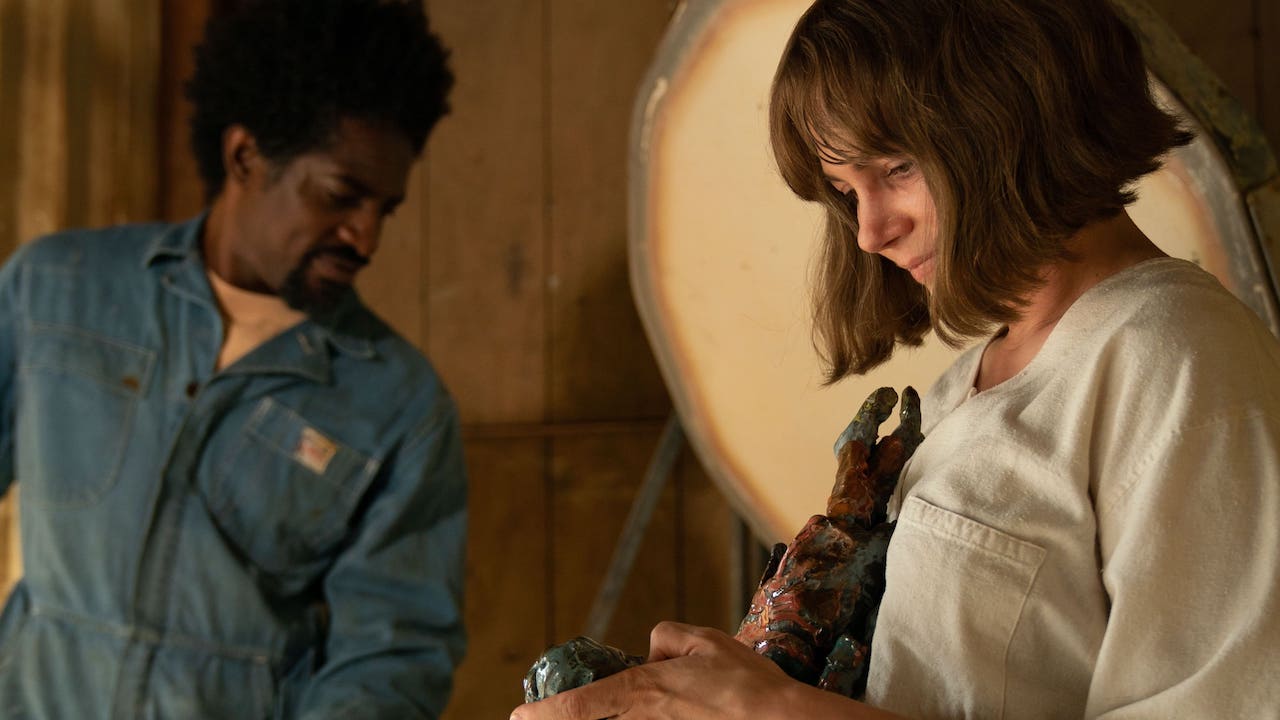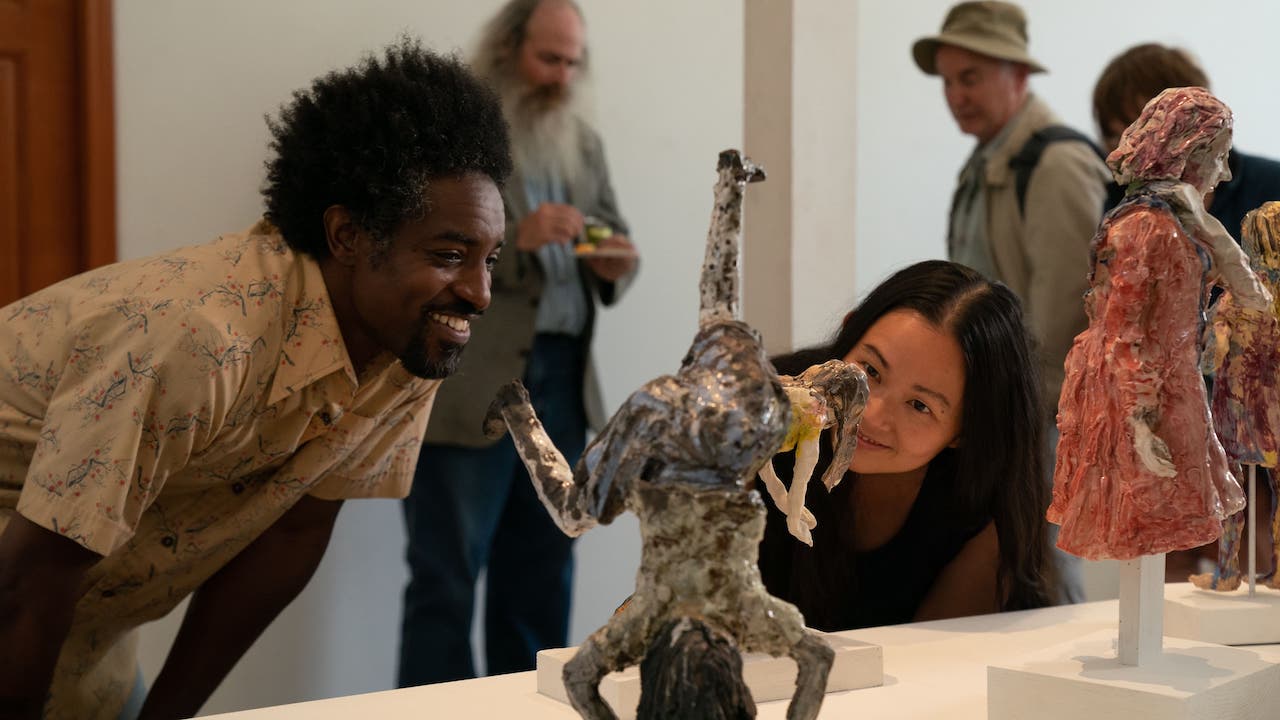Be patient with Showing Up, a slow but absorbing art world drama

The latest film from indie auteur Kelly Reichardt—now screening at MIFF—doesn’t hurry its introverted, artsy characters. To Luke Buckmaster, your attention span will determine whether you gel with Showing Up or not.
Showing Up
Indie director Kelly Reichardt is best known for contemplative, character-oriented slice-of-life dramas—so don’t approach Showing Up expecting face-melting velocity. What you can expect is a layered and skilfully lived-in performance from Michelle Williams, who plays Lizzy, a Portland-based sculptor and university arts administrator preparing for an upcoming exhibition. Williams gives the protagonist a slightly vacant demeanour: her distant look suggesting she’d like to be somewhere else. This is far from a showy part. It’s the kind that evolves in understated ways and fits Reichardt’s “window to the world” style.
The film opens with images of women, hand-painted on paper in soft pastel-like colours, before revealing Lizzy at work shaping a sculpture. She tells her father over the phone that her exhibition commences “a week from tomorrow,” setting in motion a narrative about the exertion required to be an artist—an unromantic view of creative endeavour.
Lizzy receives an unwanted distraction in the form of a pigeon that enters her bathroom and is mauled by her cat. Occurring about half an hour into the runtime, this moment feels almost revelatory given the drama’s unassuming nature. Showing Up is full of these sorts of events: momentarily significant in somebody’s life, but hardly the definition of riveting storytelling.
The pigeon interaction isn’t a once-off encounter. It boomerangs back into her life when Lizzy’s landlord Jo (Hong Chau)—a fellow artist, albeit more successful—discovers the wounded bird and enlists her to help nurse it back to health. When Lizzy’s nursing duties escalate, entailing a trip to the vet and around the clock care, the film eases into comedy, not exactly ribbing the protagonist or presenting the situation as absurd, but having gentle fun with it. A university colleague who learns about the pigeon rehabilitation program finds it hilarious: “I’m from Tacoma,” he says. “We shoot pigeons with BB guns. We don’t take them to the vet.”
At other times the humour is slightly more pronounced. For instance when Lizzy visits her brother Sean (John Magaro), also an arty type—but mentally unwell—and discovers him digging a huge hole in his backyard and standing in it. “Art is the earth talking. Poetry is the voice of the earth!” the grubby faux visionary insists. He implores Lizzy to “listen!” Then adds: “You have to listen to what isn’t being said.”

The supporting performances are well pitched and naturalistic, but Williams is very much front and centre. She breathes life into the sort of person befitting the description “introverted,” which isn’t easy to do in a consistently compelling way. Williams speaks as if it’s a minor effort, expelling sounds from her mouth.
Cinematographer Christopher Blauvelt’s camerawork has placid but decisive rhythms, and editor Ethan Rose was clearly instructed to take it easy with cuts—Reichardt prefers her cameras to explore spaces in long or long-ish takes. Colours are scaled back, images soft and grainy. She wants her characters to shine, not her surfaces.
If you don’t warm to Showing Up’s unhurried rhythms, watching it will be like observing an elderly person holding up the line in a store, counting their coins, oblivious to other people wanting them to pick up the pace. This film ain’t hurrying and could do with a prune: it certainly didn’t need to be 108 minutes long. At times I did feel like that person in line, wanting to hurry it along, tapping my watch. Go with it however and you’ll likely be absorbed into a well realised, even-minded drama with nuanced characters.




















